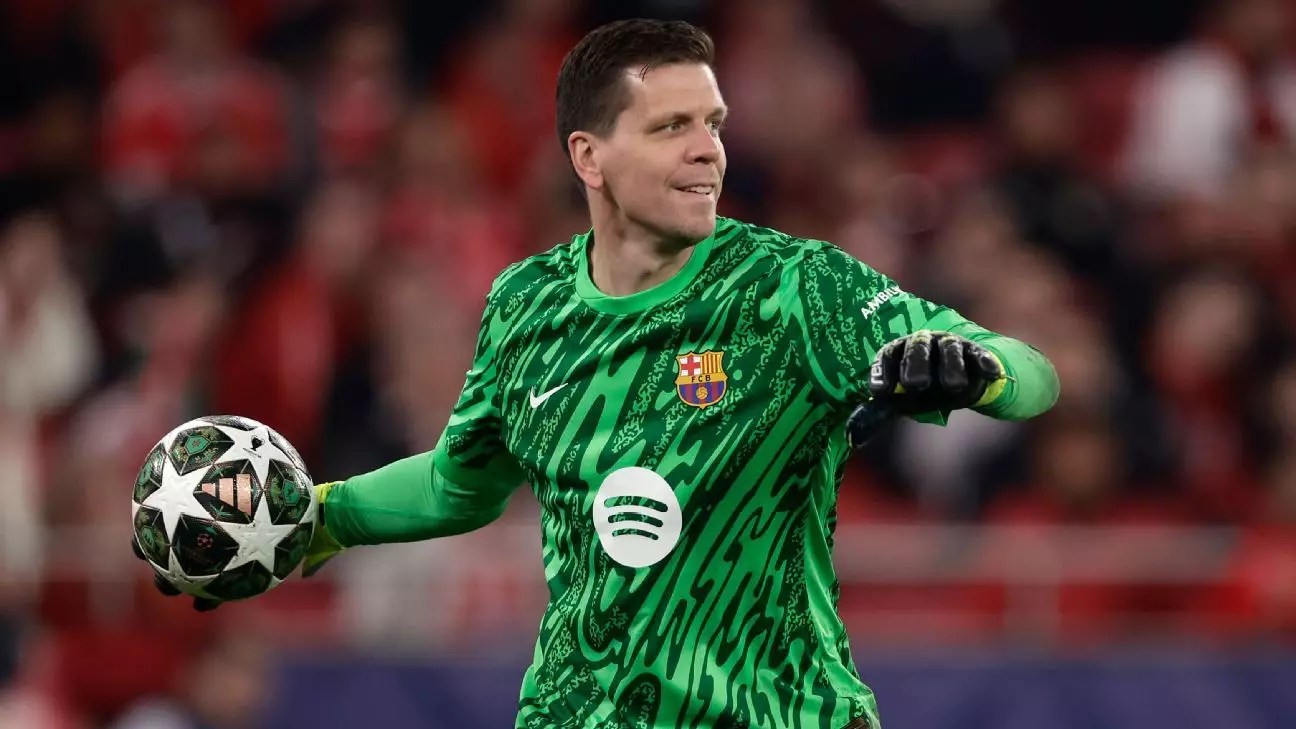Wojciech Szczęsny, the 35-year-old goalkeeper currently shining at Barcelona, has taken a bold step into the limelight by openly discussing his struggle with smoking. In a world where athletes are often scrutinized for their lifestyles, Szczęsny’s candor is both refreshing and poignant. He has emerged as a fan favorite since his return to professional football, yet he remains acutely aware of the weight of his choices, using his platform to redirect youth away from detrimental habits.
This vulnerability touches upon a larger conversation related to mental health and personal accountability within professional sports. Historically, athletes depict a facade of invincibility, often shying away from any admissions of personal failings. By frankly admitting that smoking is a habit he’s battled and ultimately lost, Szczęsny invites others not to take the same perilous path. “Please do not follow me and don’t do it,” he urges, illustrating the sometimes overlooked responsibility athletes hold as role models for impressionable fans and younger players alike.
The Paradox of Athletic Excellence and Personal Struggles
Szczęsny is acutely aware of the paradox present in the life of a professional athlete: they can be heroes on the field while grappling with personal demons off it. His acknowledgment that he falters in certain areas of life — like smoking — offers authenticity to his character, one that is often sanitized by media portrayals. Athletes such as him can inspire positive change not only through their performance but also through their honesty about their shortcomings.
While he excels in his role, boasting an impressive 13 clean sheets, Szczęsny does not shy away from attributing his success to luck and the teamwork of those around him. This humility contrasts starkly with the common ego found in elite sports, and it brings forth an important message about collaboration and the collective effort that defines a team’s journey.
Championing Transparency Over Taboo
In a contemporary culture where the conversation around smoking and drinking often skews toward demonization, Szczęsny takes a different route. He recognizes that, unlike politicians who need to uphold a polished public persona, athletes like him can afford to be straightforward. He relates that being honest is less complex than creating a narrative that’s devoid of the truth.
His confession stands out amidst a competitive sport largely focused on image and perfection. The fortitude to publicly admit personal failures may even foster a wave of acceptance among young athletes who also struggle with similar issues, reinforcing that falling short in some areas of life doesn’t negate their accomplishments in others. This narrative shift could pave the way for a more accepting environment within sports regarding discussions of personal health and lifestyle choices.
A Call to Future Generations
Szczęsny’s plea resonates deeply with the ethos of what it means to be an athlete in the modern world, highlighting that success is multidimensional. It is not merely about accolades and statistics; it also embodies how stars navigate their inner struggles and influence the younger generation. His decision to voice his challenges symbolizes a departure from silence and secrecy surrounding issues like smoking — an invitation for others to prioritize their health first and to realize the importance of openly discussing their battles.
As he prepares for key matches with Barcelona, including a significant Copa del Rey final and the Champions League semifinals, Szczęsny remains focused on his contribution and the duty he carries as a role model. His persistent openness and his battle against smoking serve as a valuable lesson in the delicate balance between professionalism and personal accountability.
In doing so, he not only hopes to set a precedent for upcoming players but also offers them a roadmap to lead fulfilling lives where achieving greatness does not have to come at the cost of one’s well-being.


Leave a Reply